What kind of answer can you expect?
There are two great examples that best illustrate this point. The first is from the Upanishads which is one of the earliest Hindu philosophical texts. The second is from the twelfth century Sufi classic “The Conference of the Birds” by Farid ud-din Attar.
a) Indra’s Experience - Learning About the Self – Chandogya Upanishad
The Upanishads are part of sacred Hindu texts. Historians have differing opinions about its age. Most agree that it predates Buddhism and parts of it are believed to be as old as the Vedas.
"The Self which is free from sin, free from old age, free from death, free from grief, free from hunger, free from thirst, whose desires come true and whose thoughts come true—That it is which should be searched out, That it is which one should desire to understand. He who has known this Self from the scriptures and a teacher and understood It obtains all the worlds and all desires.” - Prajapati, Chandogya Upanishad

The Upanishads tells the tale of Indra (on behalf of the gods ) and Virochana (among the demons) who on hearing the above go to Prajapati himself to learn about the Self.
(Pic left: Indra, the Hindu God of Rain with his consort.)
After performing the practice of brahmacharya for thirty two years, they ask Prajapati the meaning of his words.
Prajapati tell them that "The person that is seen in the eye—that is the Self." He further said: "This is immortal, fearless. This is Brahman." They asked:"Venerable Sir, he who is perceived in the water and he who is perceived in a mirror—which of these is he?" Prajapati replied: "The same one, indeed, is perceived in all these."
He asks them to look at themselves in the water and ask him further if there’s anything they don’t understand. They look in the water and see full clear reflections of themselves including their hair and nails. Prajapati further asks them to adorn themselves in their best and look at their reflections again. Prajapati said,




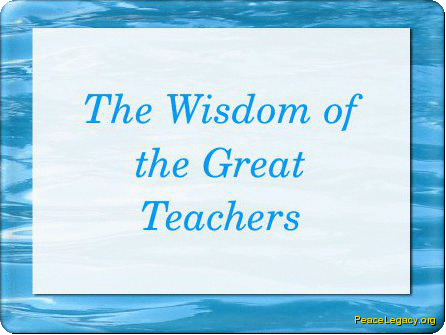
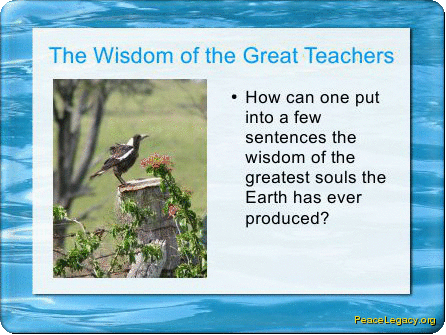
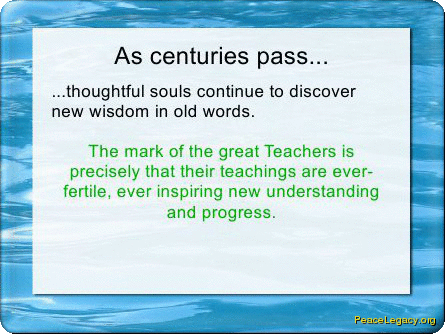

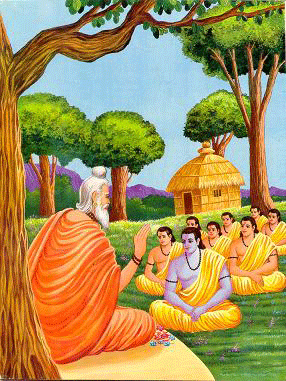 We begin life with a set of paradigms some inherited and implicit in our genes, others taught, learned, gathered, realised, unrealised, conscious and sub-conscious from our families, friends, neighbours, enemies and our environment. Our beliefs about ourselves, how we want to be, how we want our families and loved ones to see us, all play a role in how we develop and define the things we accept, reject, amend, adopt and choose.
We begin life with a set of paradigms some inherited and implicit in our genes, others taught, learned, gathered, realised, unrealised, conscious and sub-conscious from our families, friends, neighbours, enemies and our environment. Our beliefs about ourselves, how we want to be, how we want our families and loved ones to see us, all play a role in how we develop and define the things we accept, reject, amend, adopt and choose.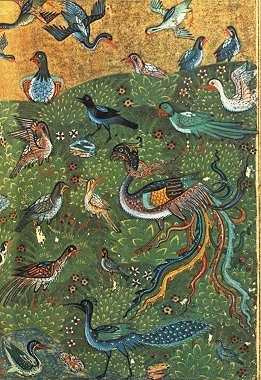
 The Upanishads tells the tale of Indra (on behalf of the gods ) and Virochana (among the demons) who on hearing the above go to Prajapati himself to learn about the Self. (Pic left: Indra, the Hindu God of Rain with his consort.)
The Upanishads tells the tale of Indra (on behalf of the gods ) and Virochana (among the demons) who on hearing the above go to Prajapati himself to learn about the Self. (Pic left: Indra, the Hindu God of Rain with his consort.)
Recent comments
8 years 42 weeks ago
9 years 1 week ago
9 years 1 week ago
9 years 1 week ago
9 years 2 weeks ago
9 years 3 weeks ago
9 years 3 weeks ago
9 years 3 weeks ago
9 years 4 weeks ago
9 years 4 weeks ago